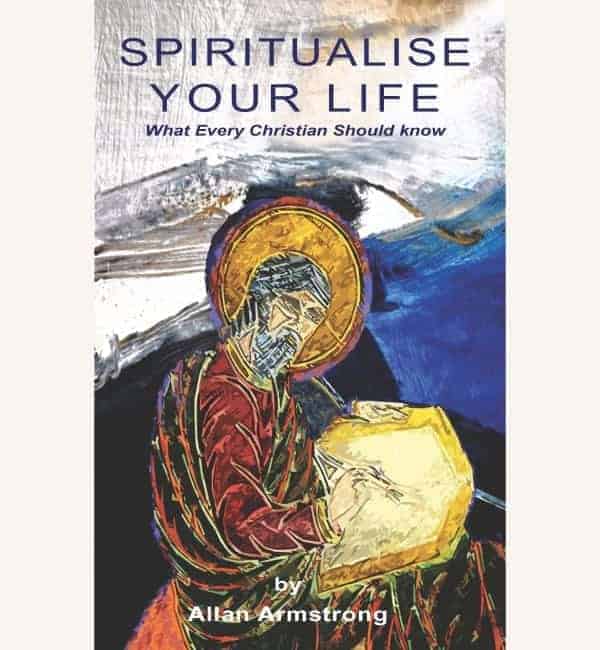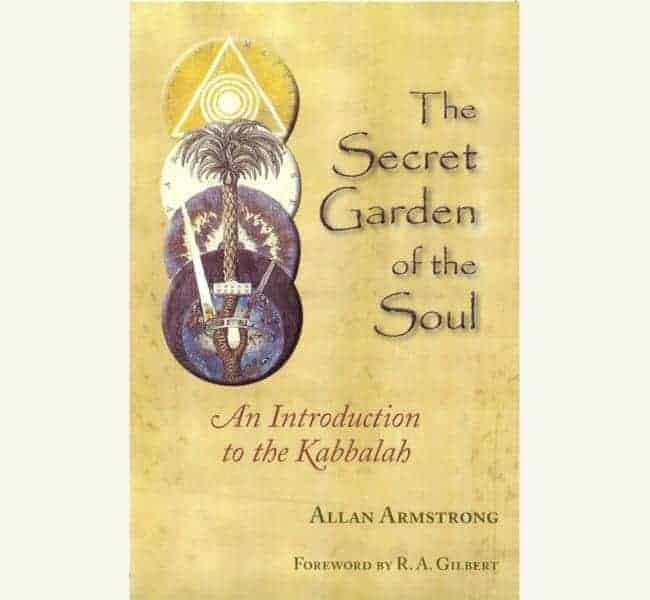
Spiritualise Your Life – What Every Christian Should Know
Spiritualise Your Life-What Every Christian Should Know was written as a follow-up to Notes on Meditation, which dealt mainly with
UK publisher of esoteric thought and radical spirituality

THE SECRET GARDEN OF THE SOUL
The title, The Secret Garden of the Soul, reflects the fact that throughout history Kabbalists have likened the soul to a garden, a secret garden hidden deep within our being. Indeed, from the earliest times that the teachings of such people, and the disciplines they employed, were directed towards enabling others to enter into that secret garden and engage with the inner reality of their own being.
Kabbalah is not a study of esoteric literature. We may read all of the spiritual and magical texts that have ever been written and still end up knowing nothing. Books, manuscripts, ancient scrolls and codices contain information, and information is only data; it gives neither wisdom nor understanding; it is not knowledge. If Kabbalah is a study at all, it is a study of the secret life of the soul in its relationship with God, the chemistry of which constitutes a secret doctrine. This may seem a strange statement to make, particularly as there is now so much written about it. Nevertheless, it remains a secret doctrine, and will ever remain so except to those who enter its sanctuaries, which are to be found within the secret garden of the soul.
Words cannot adequately convey what it is, and pictures cannot portray the inner reality of that garden, and so Kabbalah will always remain a secret doctrine free from the crude speculations of a rational mind governed by the senses. Those who wish to explore Kabbalah as an intellectual exercise will not find the door that gives them access to its secrets. Indeed, there is no person or text on this earth that can give us that knowledge; we must find it within ourselves, and finding the doorway that leads into that inner garden is no easy task. It does not require intelligence so much as awareness, nor does it require goodness so much as a willingness to be led by goodness. No one is so base that they cannot enter; yet they cannot take their baseness with them. However, it does require a dedicated heart and a persevering will.
In the first chapter of this book I described the development of the tradition; it was a unique development, a spiritual impetus in the evolution of the soul of humanity that flowed out of an ancient civilisation through the Greco-Roman world into our own. In truth, if you were to seek, you would find the essence of Kabbalah in any of the world’s great religions, but the Kabbalah as we know it emerged in the context of our cultural evolution, and doubtless it will continue to unfold as our culture changes.
Arguably the greatest influence on the shape of Kabbalah was the Neoplatonic philosophy bequeathed to us by the classical world in its ember days, a philosophy that has in many ways flowed like an underground river through the mindscape of our emerging civilisation, acting as a catalyst to our nascent understanding, sometimes welcome, sometimes not. Today there are new opportunities facing the tradition as many people and movements challenge its teachings or claim it as their own.
Over the course of the last century Kabbalah has attracted the attention of so many aspiring magicians that today the words ‘Kabbalah’ and ‘Magic’ have become synonymous. It may then be pertinent at this point to ask the question, what is magic, what does the word actually mean? The simple answer is that the word ‘Magic’ has meant, and continues to mean, many things to many people. There is nothing new in this; it has been the subject of a great deal of debate over the centuries and there is as yet no consensus as to its meaning; in fact the meaning of the word has been a matter of uncertainty since classical times.
The word Magic is generally accepted as being derived from the Greek mageia (i), a word that the Greeks derived from the word ‘Magu’ or ‘Magi’, a title of the sacerdotal caste of ancient Persia and Media, who were followers of the prophet Zoroaster and priests of the god Ahuramazda. Plato held the Magi in the highest esteem, and furthermore, informs us that the work of a magus, or magician, is the worship of the gods (theurgy). The classical world came to an end with the collapse of the Western Roman Empire in the fifth century, to be followed by the Dark Ages and the medieval era, throughout which magic generally fell under three main headings: natural magic, goetia, and theurgy.
Over the course of time the principles and dynamics of theurgy were absorbed into the sacramental system of the expanding Church, enriching and ennobling the ceremonial life therein. However, over the last century or so they have gradually fallen into disuse, being no longer valued or understood. Indeed, our society has barely any knowledge of the sacred rites of spiritual regeneration that were so important to the ancient world. This is hardly surprising as the secular world today views the spiritual dimension of life as a potpourri of primitive beliefs, practices, and superstitions promoted by the unscrupulous with the intention of fleecing the naïve and the incredulous, or by the misguided and the irrational as a delusory mystical science that rests more on hopes, dreams, and misconceptions than on any objective truth or observation.
Even the majority of those who are knowledgeable perceive theurgy and goetia to be by and large one and the same thing. Unfortunately it is a potentially hazardous perception as the objectives and dynamics of theurgy and goetia are very different: on their own terms they are diametrically opposed. Éliphas Lévi says of goetic magic, ‘This torrent of universal life … it is this which brings to our evocations and to the conjurations of our Goëtic Magic such swarms of larvæ and phantoms. Therein are preserved all the fantastic and fortuitous assemblages of forms which people our nightmares with such abominable monstrosities.
Fortunately the reality of Kabbalah is a spiritual reality, and it will adapt its outer form to suit the need of a new generation—the spiritual reality remains unchanged.
See: http://imagier.co.uk/product/httpimagier-co-ukproductthe-secret-garden-of-the-soul-by-allan-armstrong/
You can order a copy from your local bookshop
The title is:
The Secret Garden of the Soul
Author: Allan Armstrong

Spiritualise Your Life-What Every Christian Should Know was written as a follow-up to Notes on Meditation, which dealt mainly with

The Rose Priory Dialogues was a new and interesting challenge for me, and I must say, whether it is judged

It had occurred to me on several occasions that the teachings of many organisations, churches and mystical orders, are often

The Secret Garden of the Soul began its life in the mid 1980’s as a collection of personal notes intended
Sign up for our newsletter to make sure you find out about what’s new with Imagier Publishing